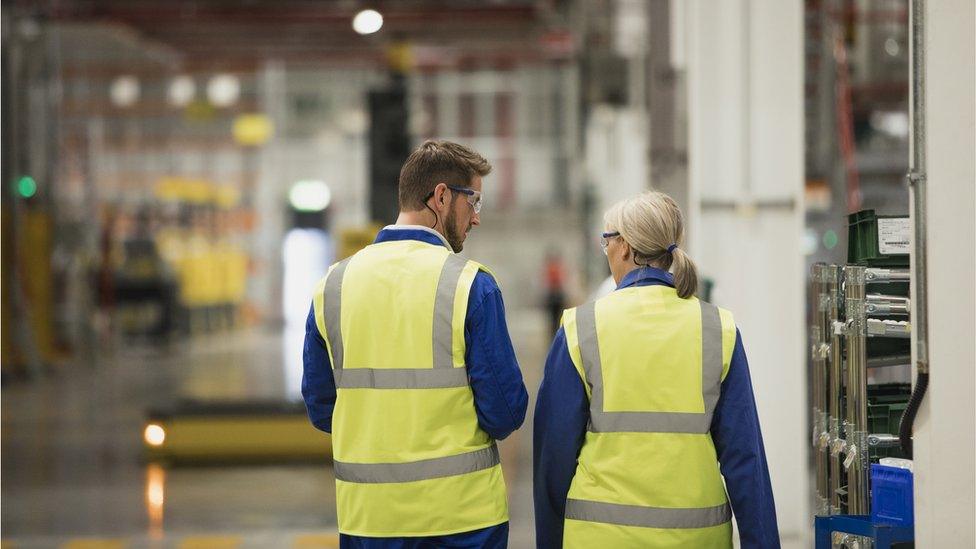Scottish Enterprise to focus on 'quality' jobs
- Published

The economic agency wants to focus on promoting quality jobs
Scotland's main economic development agency has announced a major change in its role.
Scottish Enterprise is reversing nearly 12 years when it has focused on supporting high-growth companies.
It will now shift to a broader role in helping to create quality jobs, with security and wellbeing a priority, and also to tackle inequalities.
The agency, along with Highlands and Islands Enterprise, spends more than £300m of government funds each year.
Under instruction from SNP ministers soon after the party came to power, its main focus in recent years has been to support about 2,000 firms seen as having the best prospects for growth. It also works to bring inward investors to Scotland.
However, under chief executive, Steve Dunlop, who replaced Lena Wilson last year, and with ministerial backing, there's to be what Mr Dunlop calls "an emphatic shift back" to the agency's original purpose.
He said the agency has to "play our part to deliver for the whole economy, working with businesses to create more quality jobs that help reduce poverty and support businesses, communities and families across Scotland".

The new strategy emphases fair work practices
Scotland, as in other developed countries, struggles with an uneven spread of economic success, Mr Dunlop wrote in a foreword to the new strategy.
"Deprivation and affluence are all too often uneasy bedfellows: persistent, regional pockets of low unemployment and too few businesses realising their growth potential are damaging wellbeing in parts of Scotland," he said
"Scotland is ranked 21st out of the 36 OECD (developed nation) countries when it comes to income equality.
"These challenges, alongside a complex global economy, the unknown impact of Brexit and the impact of automation and artificial intelligence, mean that more of the same economic development will, at best, deliver more of the same economic outcomes. And inequalities will remain."
The strategy commits Scottish Enterprise to a focus on
creating quality jobs that give workers security, fulfilment and respect:
giving grants only to firms that commit to fair work practices:
more investment to places where it can make a difference in reducing inequality:
intervening to help firms at an earlier stage of facing up to financial distress and economic shocks.
In the coming year, the intention is to create or safeguard "up to 10,500 jobs paying at least the real living wage".
Scottish Enterprise aims to enable up to £350m of research and development and up to £200m in capital investment.
The strategy commits the agency to supporting exports worth up to £1.5bn and help for businesses in raising growth funding, worth £255m.
There is also a drive to "democratise entrepreneurship", so that anyone feels able to start their own business regardless of where they grew up or where they were educated.
The business base in Scotland has been slow by comparison with the most lively parts of British business, in and around London.
It is claimed by Scottish Enterprise that Scotland needs 70,000 more businesses, 7,000 more exporters and 100 more high growth businesses, if it is to match the best UK regions.